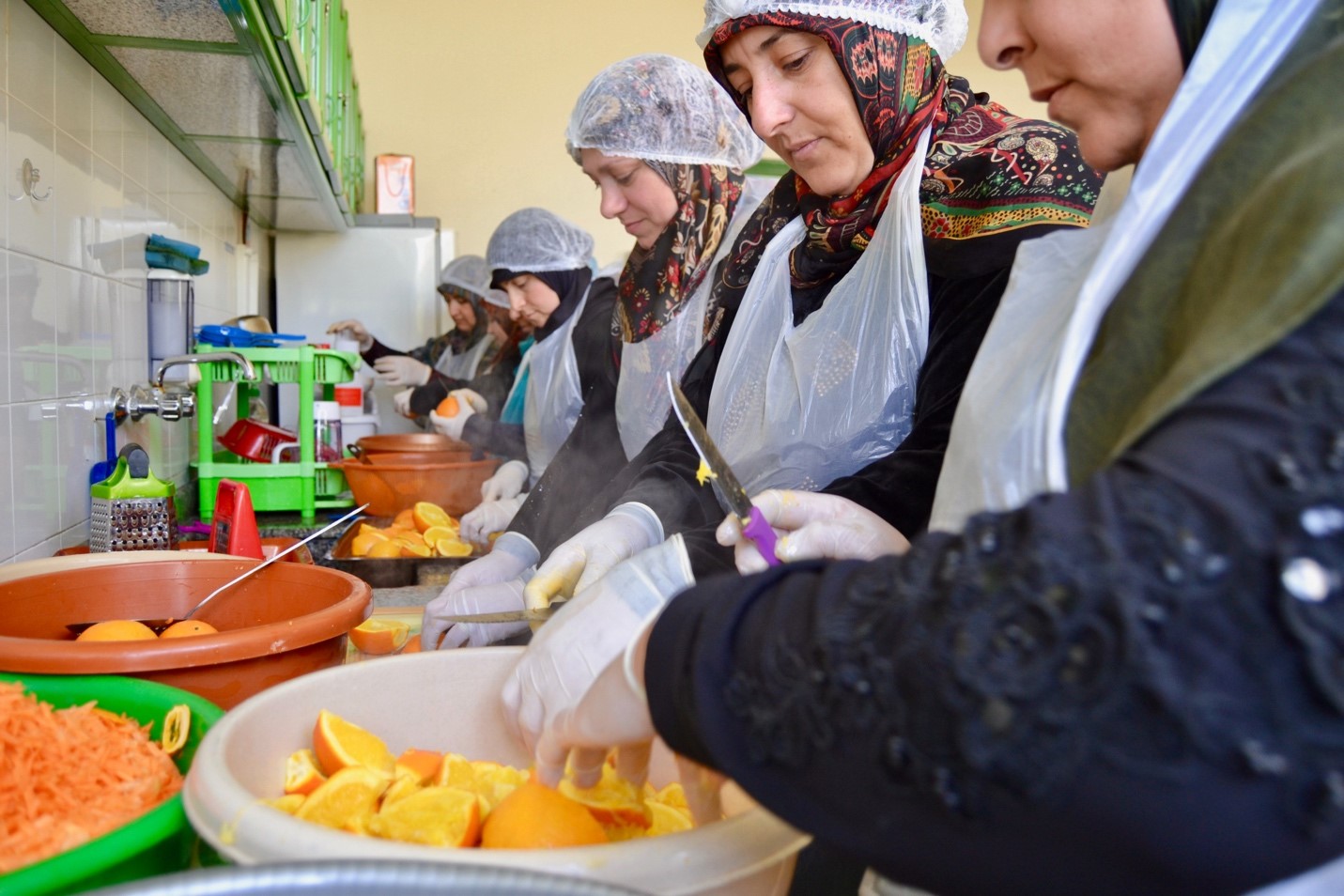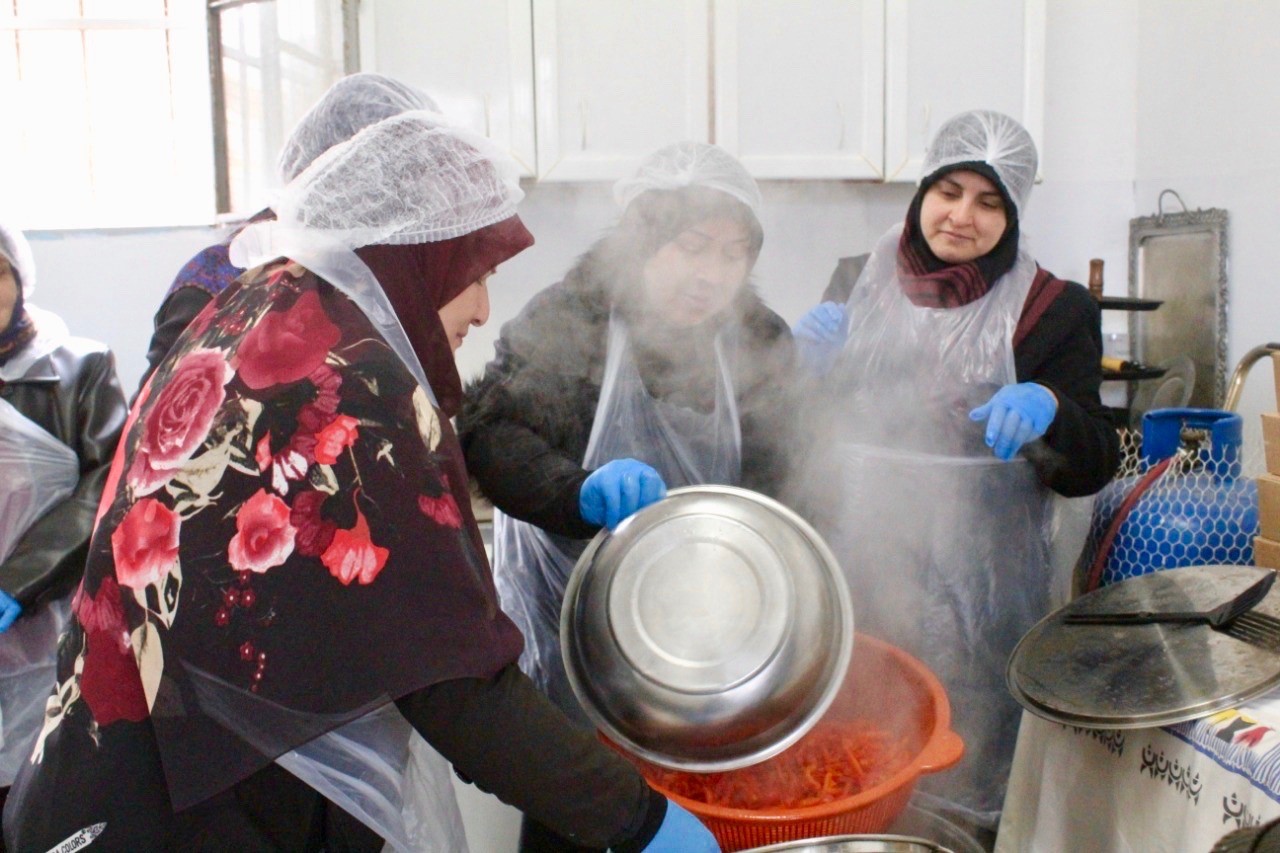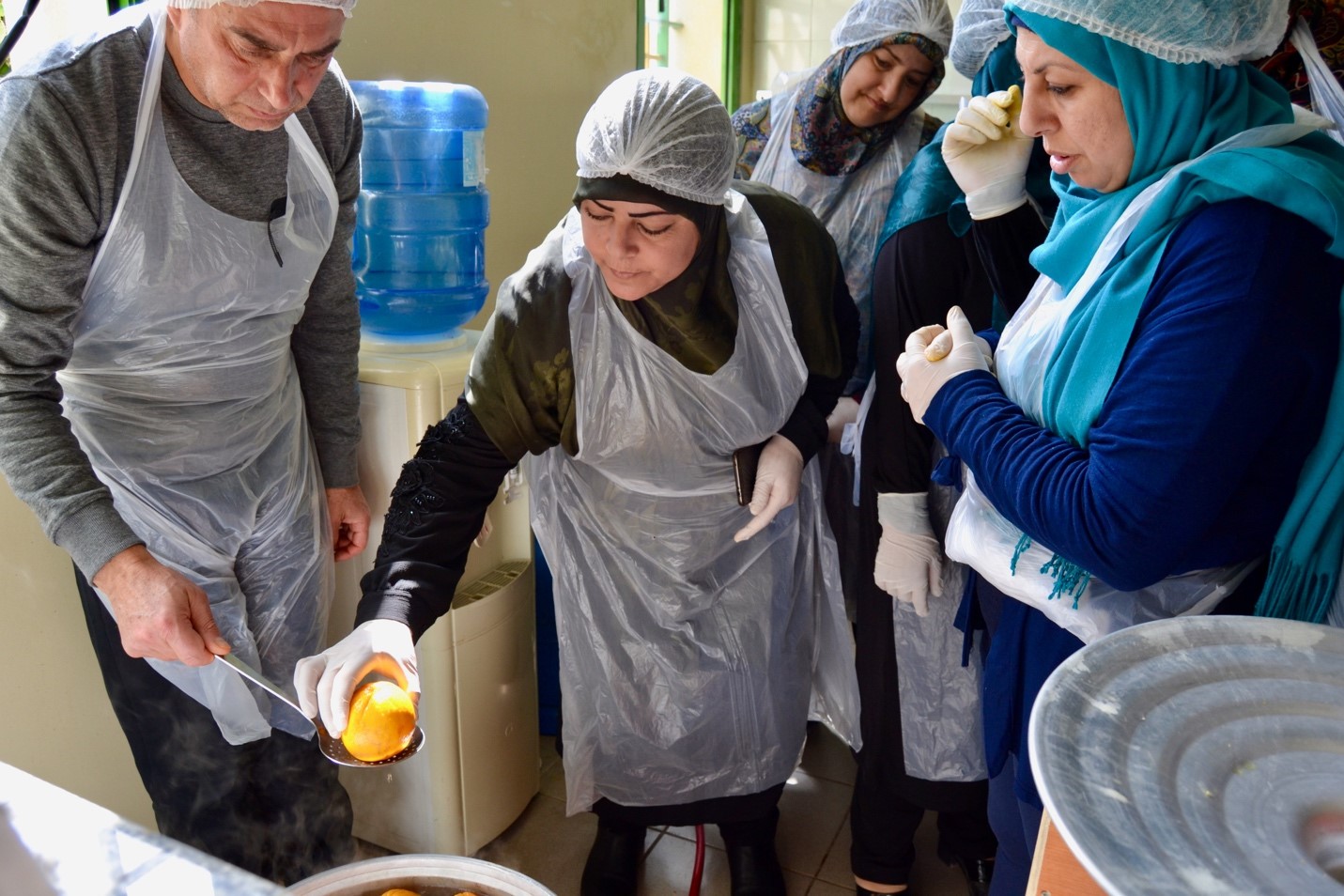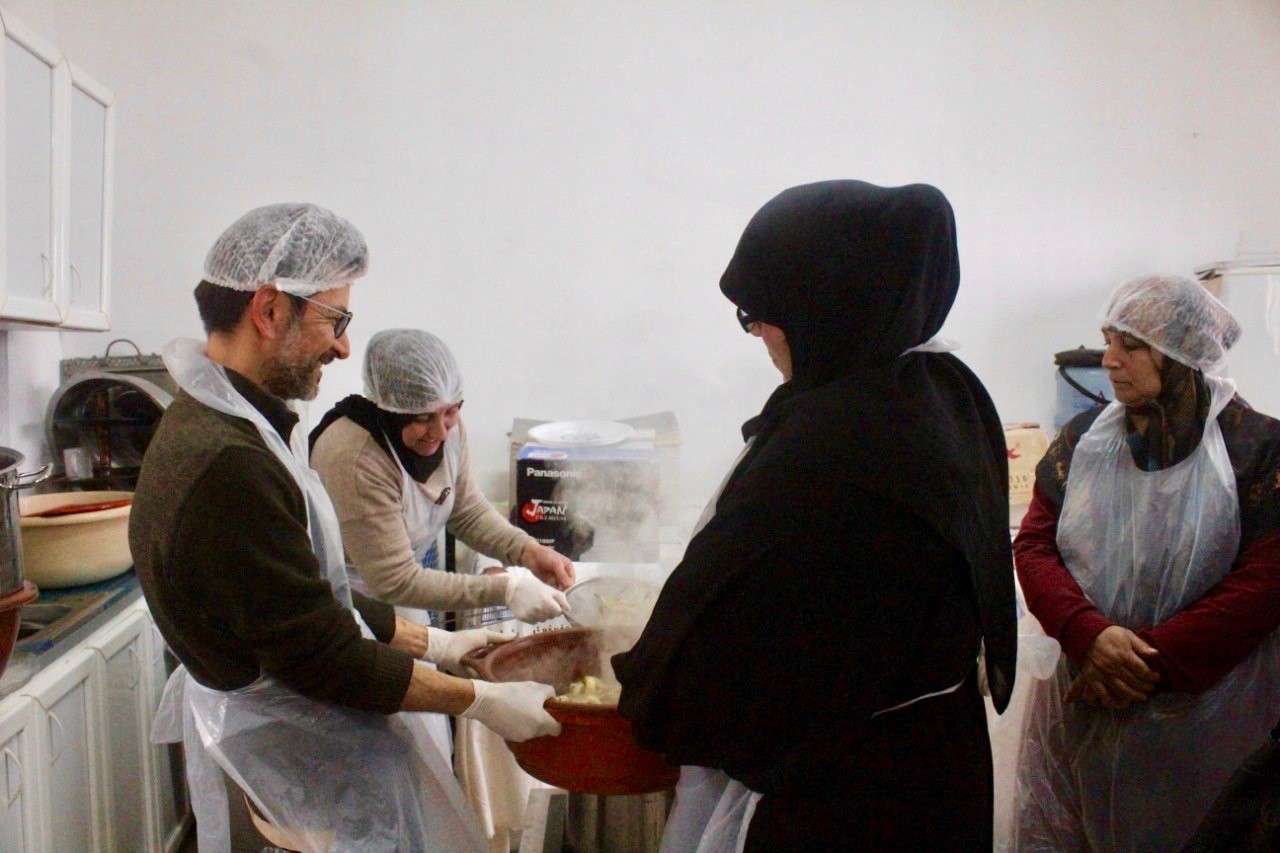She Innovates: From Southern Italy to Southern Lebanon, a merging of food, culture and women’s empowerment
The UN Women Fund for Gender Equality and the civil society organizations Lebanon Family Planning Association for Development and Family Empowerment contract agri-food experts from Southern Italy to teach rural women from Southern Lebanon new modes of food production.Date:

The world is changing. Addressing complex and highly interconnected human development challenges requires exploring innovative approaches and joining efforts with non-traditional actors. As part of its 2017-2019 grant cycle, UN Women’s Fund for Gender Equality (FGE) launched “Re-Think. Experiment”, a social innovation initiative aiming to help women-led civil society organizations (CSOs) improve their role as service providers to support women and girls most at risk of being left behind in national development efforts.
Under Re-Think, nine FGE-funded CSOs across the globe are gaining a deeper understanding of the needs of the most marginalized women, among which four are from the Arab States region. The grantees are using social innovation tools to ideate, prototype and test new, beneficiary-centered formulas in gender equality programming. The objective is to come up with piloted solutions that solve challenges for women’s empowerment, and that have potential to catalyze change at scale.
Last week, the Lebanon Family Planning Association for Development and Family Empowerment (LFPADE), one of the CSOs participating in Re-Think, tested their new programming formula with women beneficiaries in Southern Lebanon. The five-day experiment was part of LFPADE’s FGE-funded project “Promotion of the Economic Status of Women in South Lebanon”, which helps 300 rural women transition from home-based producers to profitable entrepreneurs through a programme that twins skills-upgrade with robust management and operation systems, coupled with technical coaching and mentoring. The programme has established four agricultural cooperatives and facilitated beneficiaries’ access to production techniques and business skills training. So far, the project – which began in 2016 and will conclude in 2019 – has impacted the lives of over 1500 people, mostly rural women and their families.

Although Lebanon enjoys one of the most vibrant feminist movements in the Middle East, women’s economic participation lags far behind. Only 22 per cent of women (aged 15 years and above) are active in the labor force compared to 72 per cent of men. Rural women in Southern Lebanon face particular obstacles, including limited access to financial institutions, vocational and business skills trainings, productive equipment and supplies, personal skills development and rights education. Prevalent social norms perceive men as the breadwinners for the household, while women bear the main responsibility for care and other forms of unpaid labour, with restricted economic independence.
To empower rural women, beneficiaries of LFPADE and FGE are taking the project to higher levels. The launch of “Niswa”, an agri-food brand emerging from production at the programme’s four agricultural cooperatives, supports the women to develop a motivational management cultural approach to their businesses. The women are encouraged to become active in establishing effective production systems through to branding and packaging their products. This has helped the women to develop a great degree of confidence and promising prospects are already being charted. However, the project still faces an important programming challenge: how does Niswa become a competitive and sustainable brand in the highly saturated and volatile Lebanese agri-food market?
FGE’s Re-Think initiative has tackled this challenge by adopting a social innovation approach, such as developing beneficiary archetypes and building empathy maps, which helped women understand customers and consider their views, their perceptions of the products, and problems and opportunities. This approach has helped LFPADE come up with a new programming formula to solve their challenge. The CSO contracted two agri-food experts from Italy to teach the women innovative types of food processing and open up new windows to compete in markets. In March 2019, in a hands-on South-South exchange, Sergio Urso, owner of marmalade brand InfusoNatura and Giuseppe Pellegrino, owner of organic farm Agriturismo Piccapane, delivered training to 30 beneficiaries. These experts were selected because they harvest similar crops to ones grown in Southern Lebanon but process them in different ways. They showed the women how to make original fruit marmalades and vegetable tapenades in nine new products.

The training was highly successful; food, culture and women’s empowerment merged, inciting productive energy among the trainers and beneficiaries alike. One woman expressed, “I was so excited about a recipe Giuseppe taught us that as soon as I got home [from the training], I cooked it again. The tapenades we made this week are unusual – even unheard of – in the Lebanese market. ”
The trainers were equally impressed with the women, their perseverance, and resilience and applauded the skillfulness and determination of the women. During the closing ceremony of the one-week exchange initiative, Rana El-Houjeiri, Fund for Gender Equality Portfolio Manager for the Arab States emphasized the importance of South-South cooperation that brings an agri-business tested model from the South of Italy to the South of Lebanon, where these regions share the same climate and similar natural resources. She highlighted the uniqueness of this project that is combining training on production and business development with operational management systems to improve the quality and standardization of cooperatives’ signature products, increasing their competitiveness through international certification, and linking rural women in a sustainable business structure to various markets.

This is just the beginning for Re-Think. With the technical guidance of a group of experts, LFPADE will support market sampling and production enhancement under Niswa. Innovation will continue to guide this initiative’s way forward, reaching a broader base of women entrepreneurs, and unlocking rural women’s entrepreneurial potential. As one beneficiary exclaimed on the last day of the training, “we are strong, we are willing, and we are ready!”